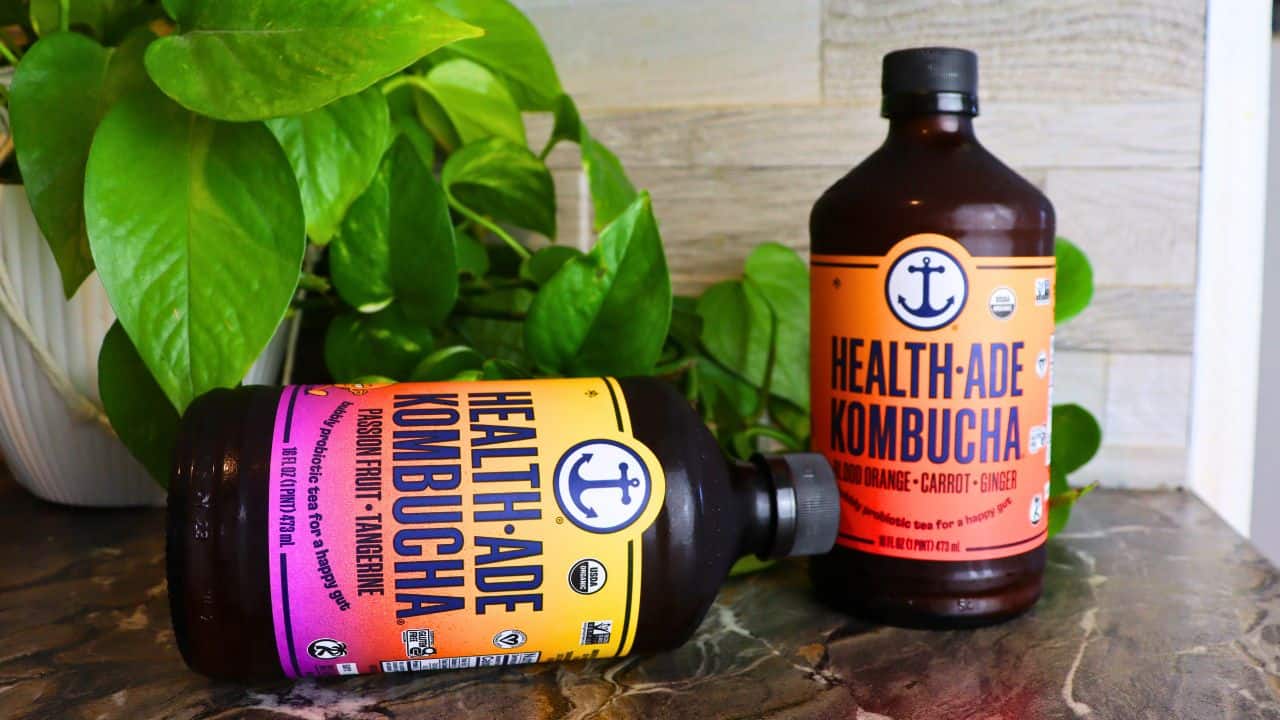Barefoot children wander around sloshing toxic chemicals between their toes. Outside, corrugated tin shacks shamble down desolate muddy banks to a blackened river that no longer runs, it swirls, thick and gloopy, the water dead. This isn’t the fallout of some nuclear disaster or the opening scene of a sci-fi movie – this is the dark side of the fast fashion industry where cheap clothes are killing our planet.
New documentary River Blue (which premiered in the UK at Raindance Film Festival) undertakes a harrowing journey into the depths of the dying industry for fast fashion, where factories in China, Bangladesh and Indonesia are poisoning the rivers millions depend on for survival. A global thirst for cheap clothes has given us a global problem, toxins from the chemical dyes and acids used to tan leather, distress jeans and colour clothes have been found as far away as the Arctic.

Greenpeace charts that between 2000 and 2014 clothing production has doubled – with over 100 billion garments produced in 2014. We buy 60% more clothes than we did pre-2000 and keep them for only half as long.
Cheap denim is a huge part of this problem and it’s at the heart of River Blue. Thanks to the stonewash look in the 1980s (it was bad enough to look at), designers and factories starting using toxic chemicals and acids to age jeans. Those same designers now this call ‘suicide for the planet’ in the film.
Distressed denim, Orsola de Castro, co-founder of Fashion Revolution Week says, ‘is fashion’s biggest insanity’.
So why are cheap jeans to blame?
Before the 1990s and the North American Free Trade Agreement (NAFTA), the US market mainly bought US made jeans – El Paso, Texas turned out two million pairs a week. But the market moved to China and the Far East, countries with less stringent environmental policies. Xiantang in China now supplies a third of the world with jeans, that’s 300 million pairs a year.

Xiantang in China is home to the Li river – far from being a life source, it is a dead zone. Polluted by the garment industry which uses lead and mercury in the dye for jeans, the run off is washed into the river with little thought. The Li, known as the Pearl River, is a toxic swamp. Parts of it have turned blue and Greenpeace has called it ‘one of the worst polluted waterways in the world’.
This river was the catalyst for the documentary,
“Fashion wasn’t a personal interest for me but water was,” says executive producer Roger Williams. “I wanted to create an environmental film about water because water doesn’t have a voice. As I was doing my research I came across a satellite photo from China where the river was an inky black blue. I looked into it and found out it was because of blue jeans – which are such an iconic item, so that became our story.”
But the story here isn’t just environmental. Fishermen can no longer fish, the river can’t support any life so people need to buy bottled water and the toxins used in the jeans factories drift downriver – taking with them carcinogenic delights – they can change immune and hormone systems, cause cancer and they don’t break down and disappear. It’s not just the Chinese inhabitants of the province who are at risk – we all are. Studies have found similar toxins in polar bears, thousands of miles away. If the polar bears have toxic water, so do we.

Before you raise an eyebrow and sigh about China, the problem isn’t just a Chinese one. It’s said you can predict the upcoming catwalk trends of Paris and New York by looking at the colour of Bangladesh’s rivers. Bangladesh’s tanneries have produced the second most toxic river in the world, the Buriganga, despite the fact 50 million people rely on it. In the film river conservationist Mark Angelo, is rowed out on it, the oars cutting through a shiney slick of river which looks more like dirty oil than water. It’s like something from a nightmare.
Cheap leather goods have created a poisonous brown swamp in Hazaribagh in Bangladesh that employs 180,000 people, many of them children, working with no shoes or gloves or mask. It holds the ignoble title of the second most uninhabitable place on earth.
In Jakarta the Citarum River river is so toxic it bubbles and yet serves nine million people and 80% of the city relies on it for drinking water. Only 20 years ago people swam, bathed and drank from the river, it was once known as Parahyangan, or the the place where the Gods resided.

The Ganges in India, the iconic, spiritual, religious waterway, is a dead river. Open sewers and factories spew waste directly into a river which half a billion people rely on and while rivers can regenerate (the Thames has done so over the last 50 years to become home to over 100 species of fish), it’s feared the Ganges is so polluted, it cannot restore itself.
Earlier this year, social media lit up with pictures of blue dogs roaming Taloja, a industrial area of Mumbai in India. Their fur had been dyed by toxic waste in the Kasadi river.
And yet with all this – our thirst for shopping the look, new season drops and the latest catwalk styles has pushed up consumption of ever cheaper clothes – the average American consumer gets through four pairs of jeans a year.
3.2% of all available water on earth is used in the textile industry every year
Cry me a river
It’s easy to underestimate how big a role water plays in the fashion industry but 3.2% of all available water on earth is used in the textile industry every year. It takes 920 gallons of water to make one pair of jeans. Just one city in China remember turns out 300 million garments a year and it’s the rivers that take the brunt of all of intensive use and misuse.
“There should be global laws for the environment as affected water travels everywhere round the world,” says Williams. “But there isn’t. A lot of these rivers need huge investments in water treatment facilities and it’s a big infrastructure change that many governments aren’t willing to undertake.”
Earlier this year the Whanganui river in New Zealand was granted the same rights as a person (which is what corporations have) to protect its importance to a Maori tribe of the same name who consider the river a part of their universe, not separate from themselves.
Currently it’s the only river which is protected in this way but the Ganges with its holy connotations would be a fantastic follow up. Giving a river rights would protect it from harm in the same way a person cannot be violated.
“Environmental laws do work,” says Williams. “The US has some good environmental laws to protect its rivers and in the UK the Thames river has regenerated over the last 50 years thanks to strict laws protecting what goes into it.”
Less talk, more action
A few years ago Greenpeace called out a lot of high street fashion brands to change their hugely polluting ways. Some have changed but many still use outsourced factories which they can claim operate independently, and this doesn’t address the huge number of cheap clothes sold all over the world, in markets, souks and small shops.
“The big brands that are publicly traded are the hardest to change,” says WIlliams. “They have a board of directors and are only interested in shareholder values but they have to start doing something. We are seeing more marketing towards being more eco, but many aren’t actually doing it.”
“Big brands have an opportunity to not hide behind subcontractors and blame them. Many say they are working within the environmental laws of that country, but most of the time those laws are non-existent,” he adds. “A big brand could help change all of that and help improve and enforce eco-friendly legislation. There’s finance available for brands who help their subcontractors move in the right direction, but many aren’t taking it up.”
De Castro agrees. In the film she says, “More and more brands don’t own their factories or perhaps even know where their clothes are made. If you don’t own your own factory there’s little interest in, or responsibility to, the environment. Distressed denim is insanity made visible, it’s a huge hazard to the environment…it’s criminal.”

But before we all go and throw ourselves in a toxic river of no hope, River Blue is keen to address what is changing. Having been filmed three or four years ago, the film uncovered a couple of denim brands keen to do things differently.
Jeanologia in Spain has developed technology to age and distress denim using only air rather than chemicals while Italdenim in Italy uses crushed shellfish as a fixing agent rather than dyes to reduce its environmental impact. It’s a carbon neutral factory and the first to sign up to Greenpeace’s detox commitment.
“Distressed denim is insanity made visible, it’s a huge hazard to the environment”
Cleaning up its act
Even the fashion industry itself is starting to call time on its actions,
Francois Girbaud, one of the designers responsible for the stonewash look says,
“We make the mistake, we were responsible. From 1972 to 1989 we were looking for ever more corrosive techniques to age and change jeans.”
Consumer awareness is now key he says. “We have to slow down the chemicals being used, people need to understand how their clothes are being made, otherwise if we carry on like this, it is done.”
“If I was running a big fashion brand,” says Williams, “I would be getting things done eco-wise and being the frontrunner in going green – that’s where the story is.”
Since River Blue wrapped, the independent, sustainable and ethical strands of fashion have grown exponentially. Williams is constantly contacted by brands who want to show him how they are doing things differently.
He’s had so much positive reaction both from audiences and smaller fashion labels that a follow up, River Blue 2, focusing on sustainable and ethical solutions to the fashion industry, looks to be on the cards.

But let’s not get cocky. The world’s vital rivers are toxic swamps, widespread consumer behaviour has to change and those toxins floating around the ocean currents are already wreaking havoc. Hundreds of thousands of impoverished people are still working in poisonous conditions and there is a ticking clock,
“Experts don’t know how much time we have left to fix this problem, but it’s not much,” says Williams. “We kill the ocean, we kill ourselves. The ocean shouldn’t be a dumping ground and the exploitative nature of fashion is having a huge effect. Between five or ten and fifty years and then maybe we’ve passed the turning point – it’s so stupid for any piece of clothing.”










